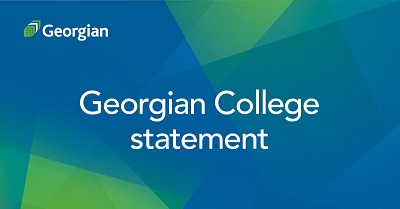Justice for Indigenous women, girls and 2SLGBTQQIA people
Dec. 9, 2022

This message is posted on behalf of Emma Greenfield, Faculty Developer, Centre for Teaching and Learning, and Greg McGregor, Manager, Indigenous Services. Content warning: it contains distressing information about murder and violence against Indigenous women, girls and 2SLGBTQQIA people
Recently in Winnipeg, a man was arrested, accused of killing four women, all believed to be Indigenous. Many advocates are connecting the tragic loss of these four women to the broader epidemic of violence against Indigenous women, girls and 2SLGBTQQIA people.
In Canada, Indigenous women, girls and 2SLGBTQQIA people go missing or are murdered at disproportionately higher rates compared to non-Indigenous populations.
As troubling as the statistics are, it’s important to understand the reason why Indigenous women and girls are frequent targets of this violence.
In the summer of 2019, the National Inquiry into Missing and Murdered Indigenous Women and Girls published a report examining the underlying causes that contribute to the ongoing violence against Indigenous women, girls, and 2SLGBTQQIA people in Canada.
The inquiry found this ongoing violence rooted in many factors, including:
- intergenerational trauma
- anti-Indigenous racism and marginalization
- colonial and patriarchal policies that continue to oppress Indigenous people
- deliberate human and Indigenous rights violations and abuses
The inquiry also named the race, identity, and gender-based genocide of Indigenous women, girls, and 2SLGBTQQIA people as a part of this ongoing violence. This is why many Indigenous advocates today are calling for an end to the ongoing genocide. They’re also naming the missing and murdered Indigenous women and girls crisis a national state of emergency.
What can we, at Georgian, do to redress the violence against Indigenous women, girls, and 2SLGBTQQIA people?
Indigenous leaders and advocates are calling upon all Canadians to take action on their commitments to the 231 legal imperatives from the National Inquiry into Missing and Murdered Indigenous Women and Girls. These 231 legal imperatives are referred to as Calls for Justice because that’s what friends and families want for their missing and murdered loved one: Justice.
The Calls for Justice are meant to redress the violence against Indigenous populations and to restore the power and place of Indigenous women, girls, and two-spirited people in our societies.
Redressing this national crisis requires all of us. Indigenous women and girls at our college and in our communities deserve to feel safe and be safe.
All levels of government and a multitude of industries, institutions and services are named in the Calls for Justice. There are even Calls for Justice for all Canadians.
Where do you see yourself in the Calls for Justice? And how can you fulfill your commitments to restoring the power and place of Indigenous women, girls and 2SLGBTQQIA people?
Learn more about missing and murdered Indigenous women and girls
- Listen: Warrior Life Podcast Canada’s Genocide: Murdered and Missing Indigenous Women and Girls (podcast)
- Watch: Our Sisters in Spirit (documentary)
- Read: Keetsahnak/Our Missing and Murdered Indigenous Sisters (available to read online via Georgian’s library)
- Explore: Reclaiming Power and Place: The Final Report of the National Inquiry into Missing and Murdered Indigenous Women and Girls(webpage)
This post was written in honour of Morgan Beatrice Harris (39), Marcedes Myran (26), Rebecca Contois (24) and an unnamed victim who is known for now as Buffalo Woman.
It was also written in honour of the hundreds of other missing and murdered Indigenous women, girls and 2SLGBTQQIA people as well as their loved ones who continue to fight for justice.
(2SLGBTQQIA: two-spirited, lesbian, gay, bisexual, trans, queer, questioning, intersex, Asexual)